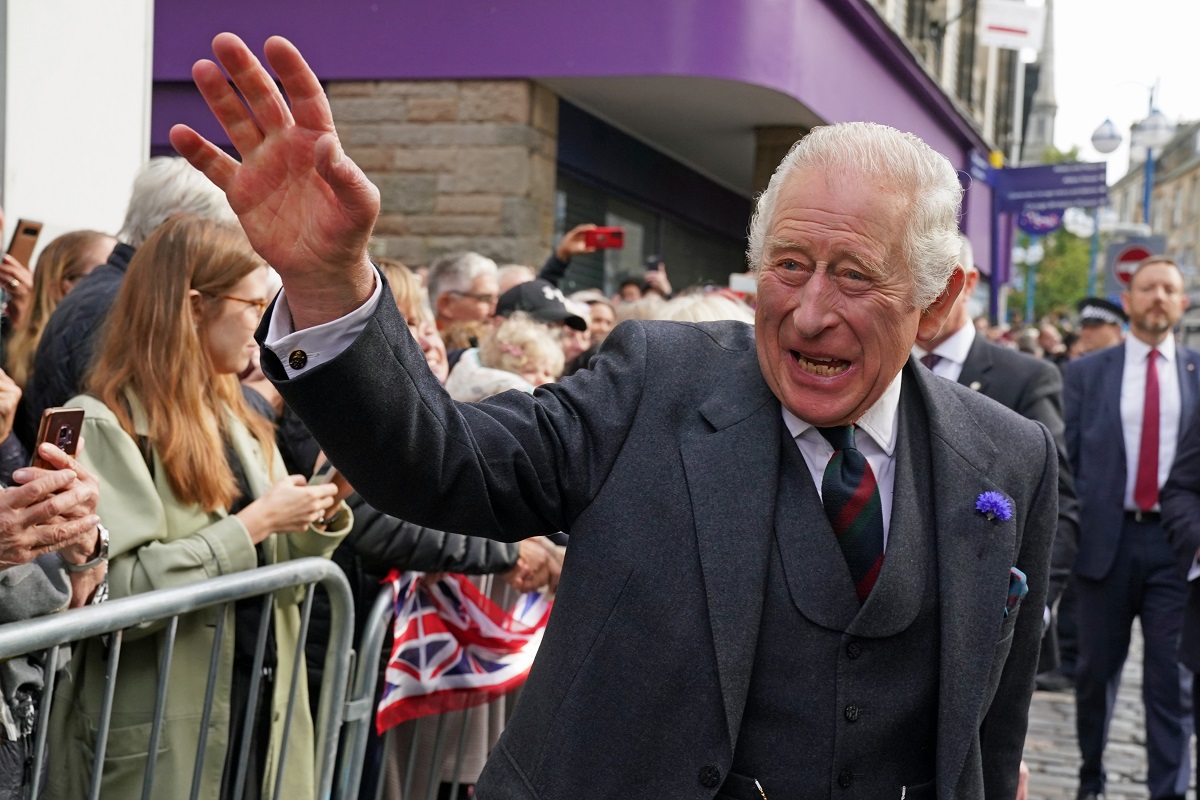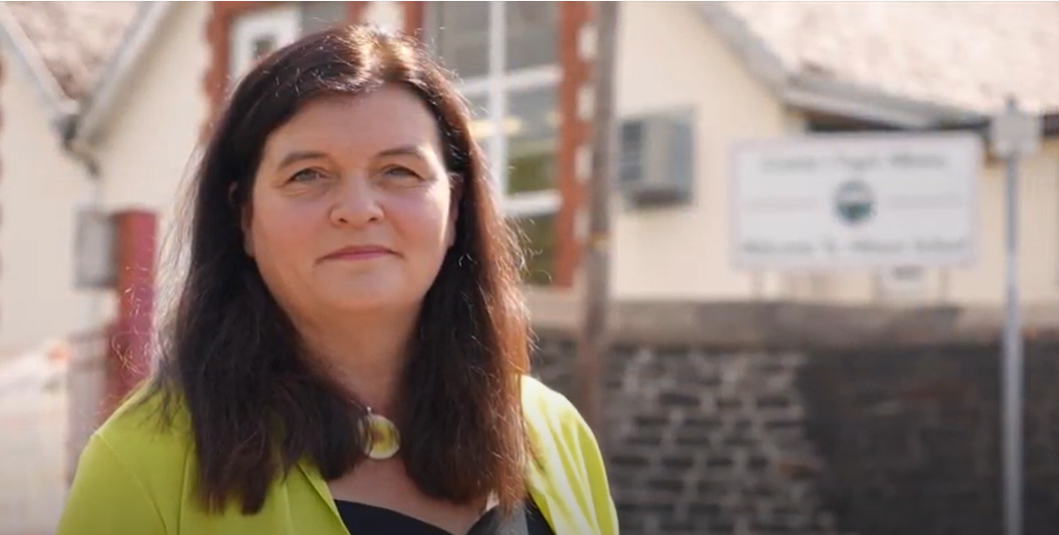It’s equality of opportunity – not a monarchy – that would give Wales real unity

Sioned Williams, Plaid Cymru Member of the Senedd for the South Wales West
The past month has seen both Queen Elizabeth II remembered for being a symbol of ‘national identity, unity and pride’ and the collapse of the British pound in the context of a cost of living crisis that has highlighted the profound economic and geographic divisions that characterise the British state at the end of Empire.
Indeed it’s hard not to feel in retrospect that the excessive and sanitised media coverage was a displacement activity, encouraging us to look away from the cavernous divisions in our society.
The UK is one of the most unequal nation-states in the world, containing one of the richest parts of western Europe (London) and also one of the poorest (the valleys and the west of Wales). 45% of the people of Wales already live in fuel poverty. A third of Welsh children live in poverty, the highest rate of any constituent nation of the UK.
While the cost of living crisis makes their daily struggle even harder, Kwarteng’s mini-budget rubbed the salt of further inequality into an already gaping socio-economic wound. The Resolution Foundation confirmed that those living in the South East of England or London will see on average more than treble the gains of those in Wales.
And within that geographical comparison lies the obvious statistic. The very wealthiest in our society are benefitting the most. By a long, long way. Even after the U Turn on the top rate.
It is against this backdrop that we must consider the change signified by the death of Queen Elizabeth. Out of respect for the period of mourning, most politicians didn’t voice their opinions on the matters which the events of the last weeks have raised; matters that are pertinent not only to Welsh nationhood – both in terms of our identity and sovereignty – but also to the kind of society in which we wish to live.
No consultation
The Crown, we were repeatedly told, is a symbol of unity, a view only possible if the British state’s history of colonial and class exploitation is ignored. It was presumably the allegedly unifying role of Royalty that informed new Tory Prime Minister Liz Truss’s parasitic piggybacking onto the new King’s early tour of the nations of the United Kingdom following his accession.
But if we were genuinely concerned about ‘unity’, then banning private education and private health care would be at the heart of political debate, steps that would unite the most economically divided nation state in Europe. What we have instead is the claim that ‘unity’ can be fostered and promoted by a system which represents the exclusive pinnacle of wealth and privilege, completely closed to all who do not share a certain genetic pedigree.
As a Member of the Senedd for Plaid Cymru, I am inoculated against spurious calls for unity. As the critic Raymond Williams noted during the devolution debates of the 1970s, ‘many forms of unity are forms of division, separation, from other groups’. One person’s unity is another’s division.
Even though I’m a lifelong republican, as an elected representative of many people who support the Monarchy, I attended the public events to mark the passing of the Queen and the accession of the new King. And as a Member of the Senedd, I was privileged to have the opportunity to make my views known directly to King Charles. I conveyed my own and my constituents’ sympathy for his loss, and also expressed my dismay (and that also of some of my constituents) at his pronouncement that Wales was to have a new Prince without any discussion with the democratically elected Senedd.
Many have remarked that with the passing of Queen Elizabeth II, the United Kingdom has witnessed the end of an era. I agree, and circumstances have certainly changed both politically and socially since the Investiture of Charles as Prince of Wales in the Labour Party orchestrated charade of 1969, but the Crown still felt it was appropriate to ignore the fact that Wales now has a parliament of its own and imposed William upon us with no consultation.
Remarkably, given his alleged republicanism, the Labour First Minister believed that this lack of consultation was wholly appropriate. I would argue that the people of Wales, via their Senedd, have a right to make their voice heard on the matter of the creation of an unelected role to represent our nation, especially one that receives funding from the public purse.
Setting aside the long and painful history of the title – used to emphasise Welsh subjugation (in his speech to the Senedd that day, the King described Wales as a ‘land’ and never a nation) – it was the clash between a young modern democracy and the most archaic and anachronistic of systems that felt blatant and jarring.
Democracy is surely a sounder basis for decision-making than blood lines. On questions of national identity as on questions of class and equality, it the people who should decide on the forms of unity that they are willing to endorse, and the divisions against which they are willing to struggle.

Equality
Those who support the Monarchy deny that it has any political influence and that it plays a neutral role in our constitution. However the earnest claims made by statespeople and commentators regarding the importance of the late Queen Elizabeth’s seemingly myriad diplomatic interventions and influential relationships with Prime Ministers and other leaders in public life seem to contradict this.
As does the revelation that the new King has been allowed to vet the emergency legislation to freeze rents in Scotland.
The promise King Charles made to defend ‘the true Protestant faith’ also felt out of step with our multicultural, multifaith society and the principles of inclusivity and parity that we rightly champion and treasure.
This is why I personally believe the Monarchy is incongruous with the vision my party have for Wales: a democratic nation in which we chose who represents us both within and beyond our borders; a nation which has equality of opportunity and social justice at its heart.
These are the foundations for the kind of ‘unity’ that, ultimately, matters.
Support our Nation today
For the price of a cup of coffee a month you can help us create an independent, not-for-profit, national news service for the people of Wales, by the people of Wales.






Erthygl dda Sioned, ac yn llygad eich lle – diolch.
I think that sums up my opinions, but perhaps I tend to be more forceful, that’s why I’m not a professional politician. Stand tall and proud Sioned, I and people like me are with you.
Wales needs more politicians like Sioned!
a very good piece, not so far attracting the support it deserves.
Totally agree with Plaid MS Sioned Williams. As a citizen of Wales cannot vote whether I want or not a Queen, King or Prince. There’s no democracy involved in that process. Equality means all have the same opportunities in life no matter who you are, rich or poor, black or white etc…. This cannot be said in a royal family and their hangers-on compared to 99.9 % of the population who are excluded by this medieval mafia closed shop funded by the taxpaying public. The monarchy itself isn’t unifying force but an extremely divisive where effectively you have one unelected… Read more »
This is an excellent article which articulates exactly my point of view.
I fully endorse everything stated by Sioned in the article, exactly what I’ve been saying regarding inequality which spews out from the establishment & the monarchy especially, since I was 15 years of age, (usually told to shut up & stop talking nonsense back then). I’m now 65 but as yet I still do not see any change in our unequal society & maybe never will but with people of the calibre of Sioned & her way of articulating loud & proud & repeatedly the message of inequality you would hope this will start hitting home.
I’m no monarchist but do we need another article on the Royal Family and is that what would give Wales “real unity”. If you drew up a list of priorities for making Wales the country we want it to be: cheap, reliable transport – more green transport than reliance on cars – and able to easily travel West to East and North to South, and vice versa, without having to go into England A good mix of jobs including well paid, highly skilled jobs so we don’t lose so many of our young people to London and don’t become an… Read more »
“…abolishing royal family…” – NOT what Sioned Williams was saying. Yes, ending the institution and privilege of the monarchy and her reasoned argument is well thoought-out and totally valid.
Diolch Sioned. Erthygl dreiddgar ddeallus, yn symud y drafodaeth ymlaen. Dwi’n cofio y wladwriaeth blismynyng Nghymru a’r daeogaeth chwydlyd adeg Arwisgiad Charles yn 1969. Mae’n codi fy nghalon o glywed fod pethau wedi newid cymaint.
The Union, fealty to monarchy, and the mere encroachment of the Conservative and Unionist Party into Wales are inherently divisive topics, so why not instead be divisive, but with our chins up and our worldview outwards – with independence?
as a Welsh labour member, I agree every word except one. Mark as a republican doesn’t give a fxxk about a meaningless title given to a pegger. #Indywales
What a fantastic article! Sioned Williams has hit the nail right on the head.
More politicians like her please!
equal opportunities to remain unequal ! as Tawney once wrote,